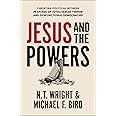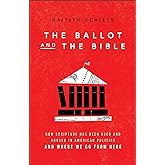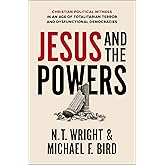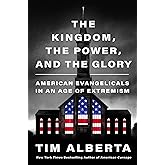
Enjoy fast, free delivery, exclusive deals, and award-winning movies & TV shows with Prime
Try Prime
and start saving today with fast, free delivery
Amazon Prime includes:
Fast, FREE Delivery is available to Prime members. To join, select "Try Amazon Prime and start saving today with Fast, FREE Delivery" below the Add to Cart button.
Amazon Prime members enjoy:- Cardmembers earn 5% Back at Amazon.com with a Prime Credit Card.
- Unlimited Free Two-Day Delivery
- Streaming of thousands of movies and TV shows with limited ads on Prime Video.
- A Kindle book to borrow for free each month - with no due dates
- Listen to over 2 million songs and hundreds of playlists
- Unlimited photo storage with anywhere access
Important: Your credit card will NOT be charged when you start your free trial or if you cancel during the trial period. If you're happy with Amazon Prime, do nothing. At the end of the free trial, your membership will automatically upgrade to a monthly membership.

Download the free Kindle app and start reading Kindle books instantly on your smartphone, tablet, or computer - no Kindle device required.
Read instantly on your browser with Kindle for Web.
Using your mobile phone camera - scan the code below and download the Kindle app.



 Audible sample
Audible sample Follow the authors
OK
The After Party: Toward Better Christian Politics Paperback – April 23, 2024
Purchase options and add-ons
For the exhausted, the hurting, and the faithful, The After Party helps reframe our political identity away from the "what" of political positions and toward the "how" being centered on Jesus.
This paradigm-shifting book complements The After Party Project--a six-part, video-based, highly interactive curriculum that provides churches, small groups, and individuals with an on-the-ground, biblically based approach to a very complex topic.
The After Party: Toward Better Christian Politics helps readers who feel despair about political divisiveness:
- Engage with others across political differences
- Learn specific steps to reframe political identity outside of partisan divides
- Focus on how we relate to one another as Jesus teaches before moving to the what of political topics
The After Party is ideal for:
- Republicans, Democrats, and Independents looking for renewed hope and humility for our nation
- Local leaders seeking to counter animosity toward political opponents, susceptibility to lies, and other practices that threaten the common good
- Congregations, classes, and small groups watching The After Party video series
- Pastors who want to encourage their congregants to trade their partisan mindsets for the mind of Christ
It's not too late. In today's political environment, faithfulness to a biblical how of political engagement shines as a radical challenge to both the Right and the Left. If you worry about what politics is doing to your community, your family, and your own well-being, The After Party will transform your political imagination.
It's time for us to go beyond party politics and--as Christians--believe in the true "party" yet to come.
- Print length224 pages
- LanguageEnglish
- PublisherZondervan
- Publication dateApril 23, 2024
- Dimensions5.48 x 0.53 x 8.36 inches
- ISBN-100310368707
- ISBN-13978-0310368700
Book recommendations, author interviews, editors' picks, and more. Read it now
Frequently bought together

Customers who viewed this item also viewed
From the Publisher





Editorial Reviews
About the Author
Curtis Chang is a public theologian and consulting faculty member of Duke Divinity School and a senior fellow at Fuller Theological Seminary. Curtis has recently written for the New York Times and Christianity Today and has appeared on CNN, CBS, ABC, NBC, PBS, and NPR’s All Things Considered. Curtis is also the host of the Good Faith podcast and author of The Anxiety Opportunity.
Nancy French is a five-time New York Times bestselling author. Her most recent is her personal memoir, Ghosted: An American Story. As a ghostwriter, she has written for a variety of people, from Republican politicians to reality TV stars. As an award-winning investigative journalist, she uncovered sexual and spiritual abuse in America’s largest Christian camp.
Product details
- Publisher : Zondervan (April 23, 2024)
- Language : English
- Paperback : 224 pages
- ISBN-10 : 0310368707
- ISBN-13 : 978-0310368700
- Item Weight : 2.31 pounds
- Dimensions : 5.48 x 0.53 x 8.36 inches
- Best Sellers Rank: #81,370 in Books (See Top 100 in Books)
- #68 in Church & State Religious Studies
- #80 in History of Religion & Politics
- #312 in Christian Social Issues (Books)
- Customer Reviews:
About the authors

Curtis Chang bridges the worlds of secular institutions and theology. In the former world, he is the founder and CEO of Consulting Within Reach (CWR), a firm serving nonprofits and government agencies. His consulting work has won an award in social innovation from the Obama White House, and he teaches strategic planning as a faculty member of American University’s School of International Service. In the Christian world, he is a consulting professor at Duke Divinity School and a Senior Fellow at Fuller Theological Seminary. Curtis is also a former senior pastor of an Evangelical Covenant Church in San Jose, California.

Nancy French has collaborated on multiple books for celebrities - five of which made the New York Times best seller list - and written books under her own name. She has conducted a multi-year journalistic investigation, written commentary, and published for the nation’s most prominent newspapers and magazines. But with GHOSTED: AN AMERICAN STORY, she is finally telling her own story.
She lives in Franklin, Tennessee with her husband – journalist David French – and family.
Customer reviews
Customer Reviews, including Product Star Ratings help customers to learn more about the product and decide whether it is the right product for them.
To calculate the overall star rating and percentage breakdown by star, we don’t use a simple average. Instead, our system considers things like how recent a review is and if the reviewer bought the item on Amazon. It also analyzed reviews to verify trustworthiness.
Learn more how customers reviews work on AmazonTop reviews from the United States
There was a problem filtering reviews right now. Please try again later.
- Reviewed in the United States on September 15, 2024This book is an excellent reminder that we Christians need to shed the idolatry of politics and seek the unity Jesus called us to.
It makes no mention of which side to support! There are interesting reviews here that state that the authors are biased. This is a nonsensical argument. Bias should be expected in any discussion about any topic ever. We all have biases, those reviews have biases. This review is biased. However, who to support or which boxes to check in the culture wars are not what this book is about-actually the opposite. The intent seems to be to center ourselves on Jesus Christ rather than right or left. It’s biased towards Jesus and unity in him though we disagree about how our political expression of faith in him plays out.
They take the interesting approach of diagnosing 4 different political types: Exhausted (me), Cynic, Combatant, and the Disciple (the goal), and using those to explore how to achieve the goals above.
- Reviewed in the United States on April 29, 2024Whether you’re a cynic about politics or ready for battle, maybe just exhausted by the latest debate — The After Party provides a different path forward encouraging Christians to focus on the why over the what of politics.
And that why is based on a Jesus-centered view, embodying Christlike values of hope and humility.
As someone whose professional life involves dealing with folks across the political spectrum I’m quite familiar with the “us versus them” mentally.
If you’re ready to escape that and do things a different way, please pick up this book.
- Reviewed in the United States on October 28, 2024The idea of moving towards better Christian politics sounds appealing. I liked the title. What was missing was unbiased factual information between the covers. Other than that, no objections.
- Reviewed in the United States on January 3, 2025I am a Christian committed to putting Christ first in my life and want to do the best I can when it comes to politics . I’m also a mental health counselor by profession. I frequently listen to people on both sides of the political spectrum and can understand how each side feels. I admittedly lean conservative but with open hands… (I took the book quiz in earnest and result was disciple) as I read this book the examples and even semantics are sympathetic to the left for the first 70% of the book (I am on my kindle so I knew the exact spot). I think the authors would do better to dole out more even handedly the partisan stories from the beginning… but overall I enjoyed the book. I think it would be hard for me to recommend this to people who seem very far left or right because my liberal friend would definitely feel justified in her victimhood in the stories and I know my deeply conservative family would see the first 2/3 of the book as only left leaning.
- Reviewed in the United States on October 5, 2024This book is extremely helpful for the Christian trying to navigate the current political issues
- Reviewed in the United States on August 21, 2024Review of The After Party: Toward Better Christian Politics for the Local Church
By Curtis Chang and Nancy French (based on the Project created by Curtis Chang, David French and Russell Moore)
The After Party, or something like it, is much needed. Our political life in the US is fractured and that fracture often runs straight through the church, families and communities, threatening to turn a treatable broken bone into a disabling appendage. Rather than engaging each other over political differences, we are increasingly self-sorting ourselves into like-minded communities and congregations, often times disappearing without a word (pages 11-16). In such polarized communities, the lack of personal presence of those with opposing views makes it easier to misrepresent and caricature those who have disappeared and to adopt an “us vs them” mentality, even to the point of “othering” or demonizing them in our minds. Larger forces at work with their own agendas often amplify and exploit such differences through social media and other means. The danger of political violence is all too real. In the face of such fragmentation, The After Party seeks to be a healing tool that addresses these forces by naming the problem, understanding our part in it, and creating healing and hopeful spaces in our congregations that follow a different path—one that requires biblical humility and hope on both an individual and collective level.
The After Party is built on the premise that the “story of how” is far more important than the “what story—of differing ideologies, parties, and policies” (p. 8). The book is part of a larger curriculum that includes a video course best used in small groups, whether in churches, Sunday schools or neighborhoods (p. 24). Processing the content relationally, in community, is critical to its method and goal.
Drawing on their own deep friendships (Curtis Chang, David French, and Russell Moore, see p. 25) and on their understanding of the politics of Jesus within the context of first century divisions within the Jewish experience to Roman occupation and empire (chapter 1) much of the book (chapter 2-5, pages 55-165, and the Appendix, pages 197-204) is designed around what they call hope and humility. The self-scored quiz in the Appendix helps the reader identify their profile: The Disciple (high hope/high humility), The Combatant (high hope/low humility), The Exhausted (high humility/low hope), and The Cynic (low humility/low hope). Corresponding chapters for each profile constitute the bulk of the book.
It is a worthy goal, and the very process of bringing people together to talk about it is a step in the right direction. Unfortunately, the rigor behind the development of these profiles is lacking: “This is not a scientifically designed diagnostics quiz. These questions are meant to be lighthearted and are designed to be a bit exaggerated to prompt conversation (p. 197).” On the short 14 question survey I found myself writing in “none of the above” three times and choosing more than one answer on two others. Such issues throw off the humility/hope continuum scores. With so much in the book riding on these categories, I was disappointed that they were not developed, tested and refined in more depth. Humility and hope also remain underdeveloped and sourced to contemporary biblical and theological scholars. (For example, on humility, see Dennis Edwards recent book, Humility Illuminated: The Biblical Path Back to Christian Character.) Their connection to the unscientific quiz is tenuous.
Despite these limitations, good things can happen in your small groups by gathering together and talking about it, even if used as a foil to discuss these important issues using other frameworks. (It is the rare teacher who uses a textbook or resource without question. Wise teachers often choose readings with different perspectives, even if controversial, to foster further reflection and critical thinking.)
Aside from these methodological and categorical concerns, there are additional weaknesses and questions to consider whether you want to use this resource in your church ministry or as a launching pad to discuss additional substantive issues. Here are a few:
What do you think about the authors’ how and what categories? Are they clear enough? Is it productive to focus on one (the how) without applying a theoretical, biblical or theological framework to the issues themselves (the what) in order determine if positions are more aligned with the truth?
Bringing people into dialog from opposite sides can be productive, but there is a danger to this approach. It could elevate some clearly unbiblical stances to undeserved equal time. The Civil rights movement in the US and apartheid in South Africa are used as how examples in the book, but the how and what of racism is intertwined. Is bringing empowered oppressors and the out-of-power oppressed together in civil dialog (as if both sides of the issue have equal standing) the way forward? What happened when slaves or women had no vote (representation) and no rights? Did they ignore the what issues at the policy level?
The underlying assumption is that “all relationships broken by the what things of politics are meant to be restored via the how spiritual values of peace.” “Reconciliation to God *inherently leads to reconciliation with others* [emphasis mine]. This cannot be emphasized enough. Because all things that divide us from God are meant to be transformed into reconciliation, all things that divide us from each other are also meant to be similarly transformed. As people are reconciled with God through the cross, they *inevitably must become reconciled with each other* [emphasis mine] around the cross (p. 88). Once the “us versus God” conflict is resolved in the cross of Christ, “combat against [any] them is to insist on combat against God” (p. 89). Does continued resistance to injustice automatically place such protesters in spiritual jeopardy? Does it give those in power another tool of oppression, claiming higher spiritual ground? Yes, we should listen and understand our discussion partner’s position, but giving equal weight to both sides can sometimes perpetuate injustice in the name of dialog. Reconciliation with God does not inherently lead to agreement over the “what things of politics.”
Principles of civil disobedience are not discussed in any depth, even though they figured prominently in movements against slavery, against Jim Crow racism, and against apartheid. Unfortunately, the Bible has too often been used to support slavery, racism and oppression. (See, for example, Mark Noll’s The Civil War as a Theological Crisis.) Christ indeed reconciles all things to himself [“the cross encompasses all ideologies, all parties, all policies (the things composing the what of politics) p. 88], but accepting God’s reconciling invitation in Christ does not do away with the hard work of critiquing fallen ideologies, parties and policies. It is needed more than ever, but groups looking for frameworks to do so should look elsewhere. Until Christ returns to judge and restore all things to himself, there will be a need to critique ideologies, parties and policies in a Christian manner. The Party isn’t over, but the authors would agree that eschatological hope is critical for Christians living between the first and second coming. In his parables of contrast, Jesus compared the smallest and almost invisible things (the Mustard Seed and the Leaven) with the eschatological fullness of the Kingdom of God. [See Joachim Jeremias, The Parables of Jesus (2nd revised edition), p. 147: “The purpose of the parable is to compare the Kingdom of God with the final stage of the process there described with the tall shrub affording shelter to the birds, and with the mass of dough wholly permeated by the leaven…”]
Relegating the “real battle” to a spiritual realm of powers and principalities (p. 100), as if they have little or nothing to do with ideology, party, or policy (p. 101) is misguided (see N.T. Wright’s and Michael Bird’s new book, Jesus and the Powers and Chang’s June 15 Good Faith podcast episode 128 with N.T. Wright). The penetration of these fallen powers into the flesh-and-blood material realm is real. (This includes ideologies and policy.) So too is our resistance to them. Our eschatological hope is that no matter how bleak things seem, no matter how small or invisible is the tiny mustard seed or leaven representing God’s Kingdom, that Kingdom is present and God will bring it to fulfillment, reconciling all things. Things may seem bleak, but in Jesus, God’s Kingdom was initiated, bringing true hope that he will complete what he has begun.
Postscript: I have now reviewed some of the video curriculum, including the entire lesson on “The Cynic.” The video quality is good. Instructions are given to stop to discuss suggested questions in small groups or in the larger group. The content in “The Cynic” ignored some of the “how” and “what” distinction in the book. That is a strength in my mind, but at the cost of inconsistency with the book. My church has decided to move ahead with plans to use this curriculum in a fall adult Sunday School class. Some indirect feedback has already been received concerning one of the project’s contributors (David French). His endorsement of a presidential candidate may preclude some from participating. Perhaps I will write about its reception at a later time.
- Reviewed in the United States on October 23, 2024Enjoyed the book
- Reviewed in the United States on July 19, 2024Very useful book this year. Really helpful personally. Will share to others.




















